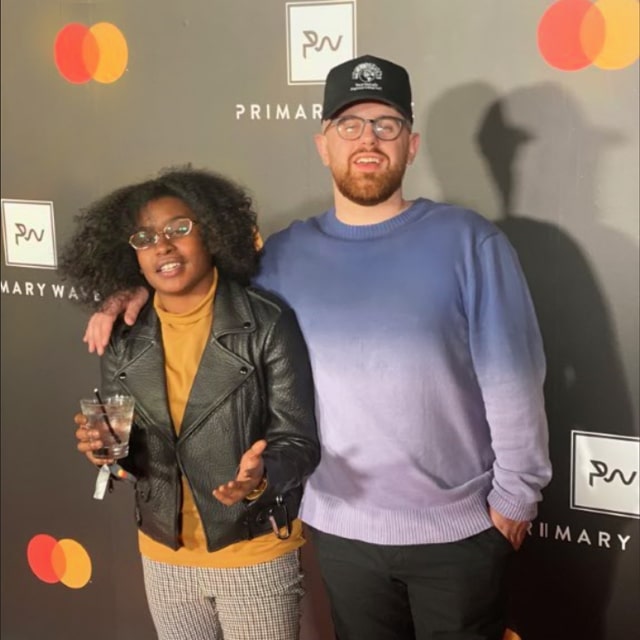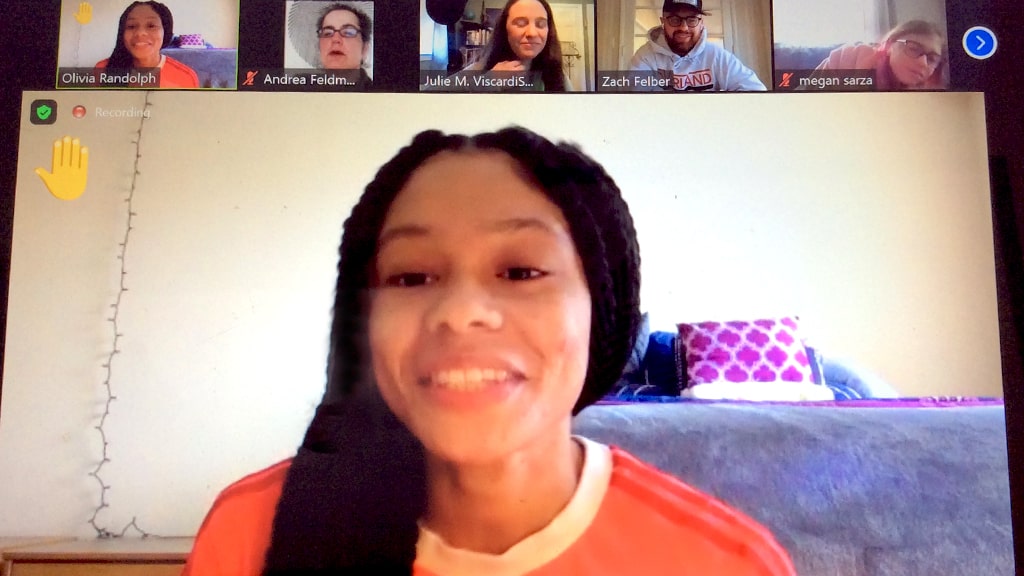How to Build a Successful Career in Music Management
Loving music is obviously a crucial prerequisite for a career in music management. But in many ways, qualities like time management, concise communication skills, and the ability to anticipate a client’s wishes are more important. People skills are paramount. Gaining entry into the industry can take some clever maneuvering, too — not to mention patience and perseverance.
Professor Julie Viscardi-Smalley recently invited her former student, Zach Felber, to her Concert & Event Production Management class so he could share his career journey — and give her students some insight into what it takes to be successful in the music industry.
Based in Los Angeles, Felber has taken on numerous roles in music, including A&R (artist and repertoire) and music publishing. Most recently, he’s founded Overland Arts, a boutique management firm whose roster includes singer-songwriters like Gwen Bunn, and producers like Bram Inscore and Ryan Linvill.
“When you’re trying to advance in this career, it has to be because you love it.”
He got his first break during an internship when a receptionist didn’t show up one day. Sensing a great opportunity to get his foot in the door, he went to HR and said he’d take the position. After an intense interview, he got the job, which was equally intense. “But two weeks later, they signed Meghan Trainor and I got hired as an assistant.”
While there’s an element of luck to this story, Felber made sure to prove himself to be an asset no matter what role he was in. And he quickly realized the importance of choosing the right people to work for: “My career trajectory started just working under other people, and being as much of a sponge as I could. Learning from people who had been doing this a lot longer than I have and who were working with artists that I would have never had access to.”
Zach’s Top 5 Life Lessons in Music Management
1) Take positions where you can make mistakes and learn from them.
“There’s such a tremendous value in being around others who have done [the job] for a long time and getting the chance to — and it sounds bad, but mess up someone else’s stuff before you mess up yours.”
Felber rewinds a bit to explain in more detail: “First of all, mistakes happen and that’s okay; they know that they’re hiring an assistant, and this is [your] first job. And you know as long as you’re not making like the same mistake 8 times — or even twice — then you’re probably doing okay.
“Learning on the job is really what gives you that experience.”
2) Learn to manage your time (and don’t forget work/life balance).
“I try to get up early, and I try to start every day with an hour-long walk. I use post-it notes. Google calendars. And I set boundaries for myself. If I’m going to be away, I communicate that. Be clear.”
3) Learn to be patient and make every job an opportunity to absorb as much as possible.
“When I was like just getting started, I always wanted to be like 10 steps ahead of where I was at. Now I try not look back and want to change things; I think part of it is really being okay with the process and knowing what’s meant for you is going to be for you, especially if your intentions are all in the right direction.”

4) Make decisions based on your passion.
“When you’re trying to advance in this career, it has to be because you love it, not because you think you’re going to make money or be fame-adjacent. That enthusiasm goes a long way — there’s nothing worse than an intern who clearly doesn’t want to be there.”
5) When searching for internships, be direct and be genuine.
“With things still being virtual, it might even be an advantage — opportunities are more limitless than before. So dig deep, and do your research. There are a lot of indie managers out there. Email people directly. Praise what they’re doing without being a kiss-ass. ‘I love your roster.’ But always, always be genuine.”
Explore JWU’s Sports, Entertainment, Event — Management program, and learn more about JWU Providence’s Music & Entertainment Industry Student Association by following them on Instagram.
TOP: ZACH FELBER OF OVERLAND ARTS MANAGEMENT SPEAKS TO HOSPITALITY MANAGEMENT STUDENTS. ABOVE RIGHT: ZACH WITH ONE OF HIS ARTISTS, MUSICIAN/PRODUCER GWEN BUNN. BELOW: STUDENT OLIVIA RANDOLPH ASKS ZACH A QUESTION DURING THEIR ZOOM Q&A.




